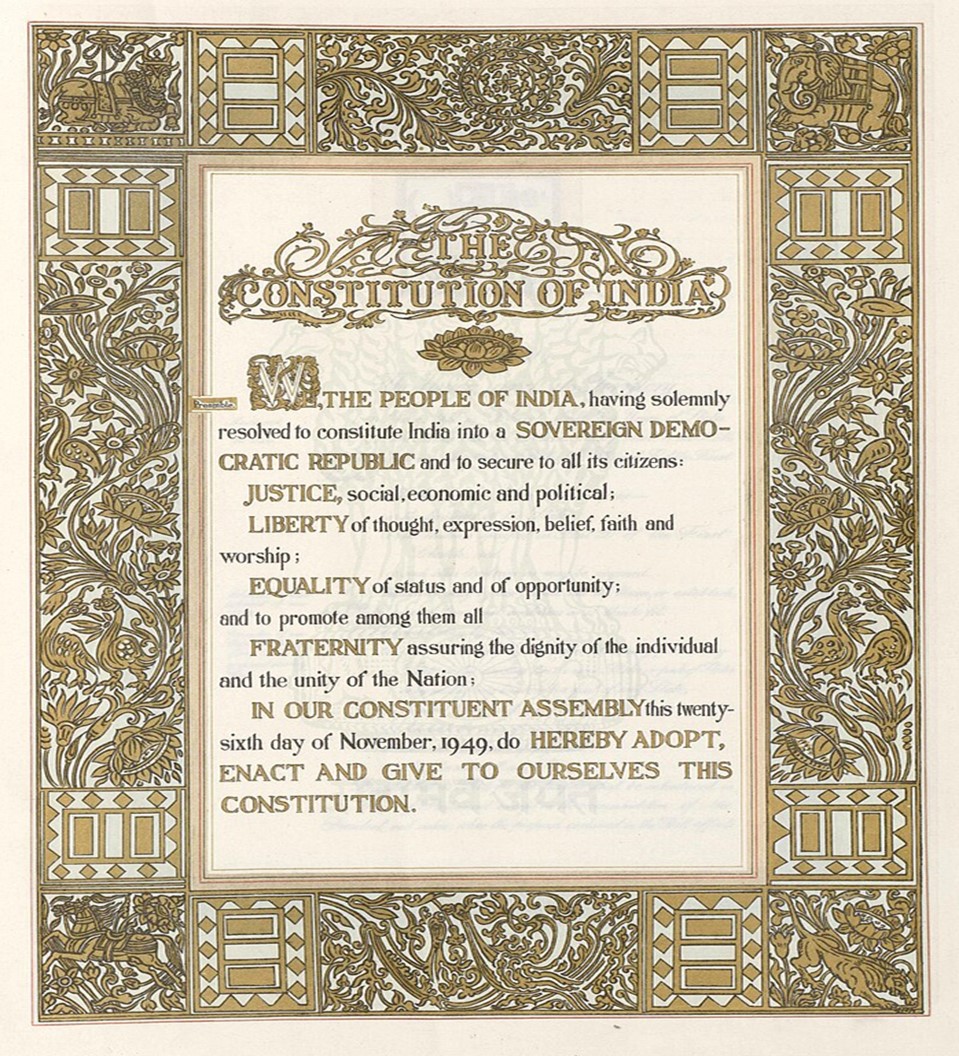India’s Republic Day 2025: Reflections of History, Culture, Military Strength, and Diplomacy
India rejoices on its
76th Republic Day on January 26, 2025. The word “Republic” is enshrined in the Preamble
to the Constitution of India, and is called the “Soul of the
Indian Constitution” as it encapsulates the fundamental values that the Indian
Constitution aims to achieve. The Republic Day is celebrated in India’s
capital, New Delhi, at Kartavya Path (Path of Duty), it was named King’s Way,
then Rajpath. It stretches from Rashtrapati Bhavan (President’s House) to India
Gate. The President of India addresses the nation on the occasion. The first
President of India, Dr.
Rajendra Prasad, who was the head of the Constituent
Assembly, delivered his speech on August 14, 1947, on the eve of
Independence Day. On this day in 2025, India’s President Mrs.
Draupadi Murmu delivered her speech.

What Does It Mean by Republic
The process for
electing the head of state in India involves a system where citizens play a
crucial role, either directly or indirectly, in choosing their leader. This
ensures the position is not filled through monarchy or hereditary succession,
unlike its colonial power, Great Britain. The individual who assumes this
important role is the President of India. The Constitution of India, which
serves as the supreme legal document outlining the governance of the country,
was enacted
on January 26, 1950. This day is celebrated annually as Republic Day in
India, marking the transition from British rule to an independent republic.
Before the establishment of the Constitution, India was governed by the
Government of India Act of 1935, a piece of legislation enacted during the
“British Raj” that provided a framework for governance but fell short of true
self-determination for the Indian populace. The adoption of the Constitution
marked a significant turning point in India’s history, establishing democratic principles
and a framework for governance that remains in effect today.
Symbolizes History, Culture,
Military Capabilities, and Diplomacy
The celebration and triumph
of the Republic Day reconnects Indians to the history of the freedom movement
under the leadership of Mahatma Gandhi and other prominent leaders who sacrificed
their lives to liberate India from the British rule, the working of constituent
assembly, people who worked tirelessly to compile and build a composite Bharat.
It also reconnects the people of India about the journey of adoption of India’s
National
Anthem- Jana Gana Mana by the Constituent Assembly on January 24, 1950,
that was written by Sir Ravindranath
Tagore in Bengali language. It also reminds that it is pious document that
inherits the values and philosophical teachings of the ancient Indian civilization
viz-a viz modern history of the word.
On
the cultural front, Republic Day is a grand celebration of regionalism
and the culture of each part of India that showcase the diversity of languages,
folk songs and dances in form of Tableaux. It gives the message of unity and
love from Kashmir (North) to Kanyakumari (South) and Kutch (West) to Kibithu (East).
Demonstrating
advancement in science, technology, and capabilities of the armed forces is an
essential feature of the Republic Day Parade. The more than 3 KM stretch at
Raisina Hill gives a thrilling experience of aerial
performances by the air force, demonstrations of state-of-the-art artillery
systems, and showcases of naval strength to the spectators. This event not
only serves to inform the public but also inspires future advancements within
the military and the nation as a whole.
In
addition to ceremonial and traditional significance, inviting foreign leaders
as Chief Guests for India’s Republic Day has become a custom. This practice
enhances India’s relationships with other countries and supports India’s
multifaceted alignment with the world. This year, Indonesia’s
President has been honored with the role of Chief Guest, reflecting a
deepening of ties between India and Indonesia. This invitation is significant
as it underscores India’s commitment to fostering stronger connections within
the ASEAN region, aligning with India’s Act East Policy, which aims to promote
economic and strategic partnerships in Southeast Asia. By welcoming Indonesia’s
President, India hopes to strengthen collaboration in various sectors,
including trade, security, and cultural exchange, reinforcing its position as a
key player in regional diplomacy.